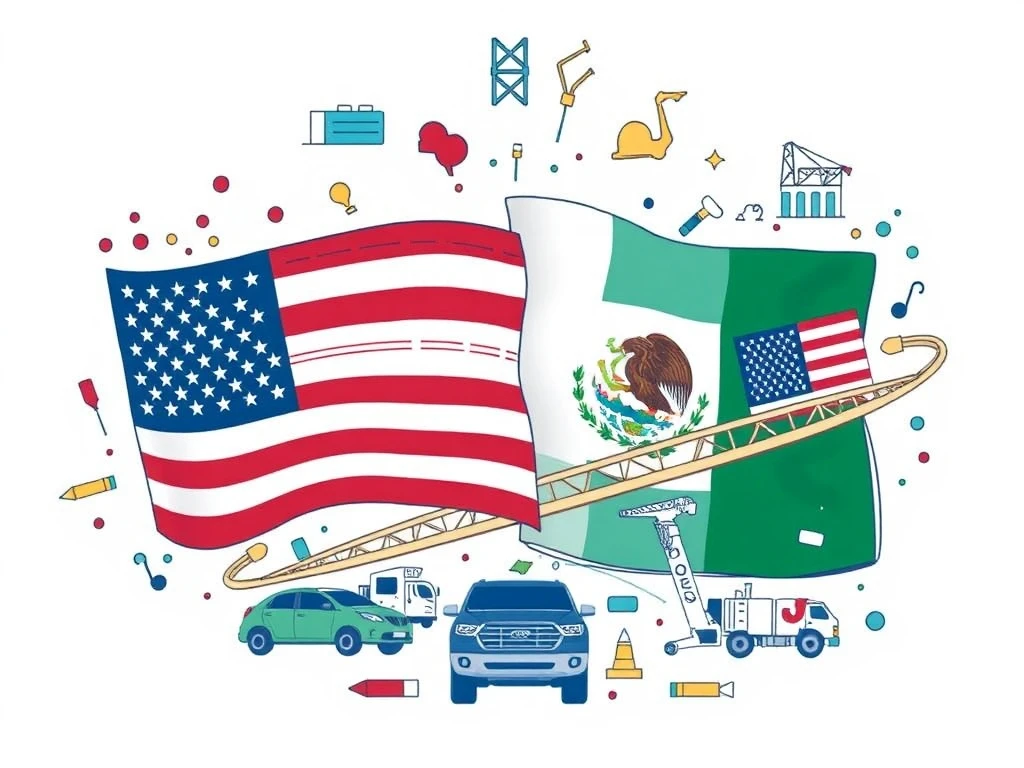U.S.-Mexico Trade Extension: 90-Day Lifeline for Automotive and Metal Sectors

The U.S. and Mexico have just announced a 90-day extension of their critical trade framework, a move that could either stabilize or disrupt key industries like automotive and metals. For crypto enthusiasts watching global markets, this development signals potential volatility—or opportunity—in commodity-backed tokens and supply chain-focused blockchain projects.
Why the U.S.-Mexico Trade Extension Matters Now
This 90-day pause button on trade tensions comes at a crucial time. Here’s what’s at stake:
- 25% tariffs remain on cars and fentanyl
- 50% tariffs stay for steel, aluminum, and copper
- Mexico must eliminate non-tariff barriers immediately
Automotive Sector Braces for Impact
The extended tariffs could reshape North American auto manufacturing. While protecting U.S. jobs, they may:
| Potential Benefit | Possible Drawback |
|---|---|
| Boosts domestic production | Increases consumer prices by 5-15% |
| Strengthens local supply chains | Could delay EV transition timelines |
Non-Tariff Barriers: The Hidden Trade Killer
Mexico’s commitment to remove bureaucratic hurdles could:
- Reduce export processing times by 30-50%
- Cut compliance costs for U.S. businesses
- Streamline blockchain-based trade documentation
What Crypto Investors Should Watch
This trade development affects crypto markets in three ways:
- Industrial metal tokens may see price fluctuations
- Supply chain crypto projects could gain relevance
- Trade finance blockchain solutions may get a boost
The next 90 days will test whether this extension leads to lasting solutions or just kicks the can down the road. For crypto markets tied to real-world commodities and trade, the stakes have never been higher.
FAQs
Q: How might these tariffs affect cryptocurrency markets?
A: Commodity-backed tokens, especially those tied to metals like copper or aluminum, could experience price volatility based on trade flow changes.
Q: Could blockchain technology help with the non-tariff barrier removal?
A: Yes, blockchain-based trade documentation systems could significantly reduce bureaucratic delays and improve transparency.
Q: What’s the connection between fentanyl and trade policy?
A: The 25% tariff on fentanyl represents an unusual case where trade policy is being used as a tool for public health enforcement.
Q: How long have these U.S.-Mexico trade tensions been ongoing?
A: The current framework dates back to 2018, but tensions over trade imbalances and domestic protections have existed for decades.







